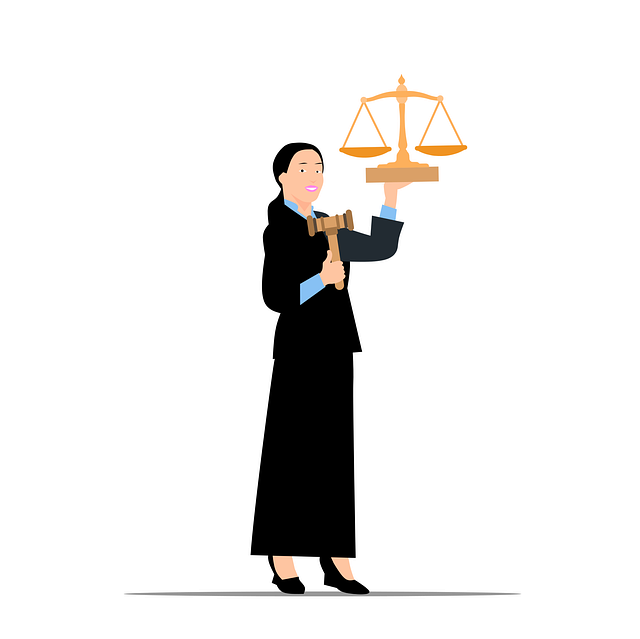Understanding witness credibility is a critical trial strategy, impacting legal outcomes in civil and criminal cases. RF Finance law firms employ strategic methods, such as meticulous investigations and robust cross-examination, to contest witness reliability in financial disputes. These techniques are essential for local and federal courts, ensuring justice and protecting clients' interests in high-stakes transactions. By combining thorough documentation, expert analyses, and effective legal arguments, these strategies significantly influence outcomes in white-collar and economic crime cases across the nation.
In the intricate dance of civil litigation, witness credibility stands as a pivotal cornerstone for trial strategy. This article explores the nuanced world of RF Finance law firms and their pivotal role in navigating complex cases. We delve into strategies to contest witness testimony, analyzing ethical considerations while discussing legal precedents and case studies that shape winning credibility battles. Discover expert insights on effective cross-examination techniques, enhancing your arsenal for successful outcomes in trials involving financial disputes.
- Understanding Witness Credibility: A Cornerstone of Trial Strategy
- The Role of RF Finance Law Firms in Complex Civil Litigation
- Strategies for Effective Cross-Examination: Challenging Witness Testimony
- Legal Precedents and Case Studies: Winning Through Credibility Battles
- Ethical Considerations and Best Practices in Witness Credibility Challenges
Understanding Witness Credibility: A Cornerstone of Trial Strategy

Understanding witness credibility is a cornerstone of trial strategy, as it significantly influences the outcome of legal proceedings. In civil and criminal cases alike, the accuracy and reliability of witnesses’ testimonies are scrutinized vigorously. Lawyers employ various strategies to contest witness credibility, ensuring that juries or judges receive unbiased information. This involves meticulous cross-examination techniques to expose inconsistencies, biases, or motivations behind a witness’s testimony. By revealing potential inaccuracies or conflicts of interest, legal professionals aim to cast doubt on the reliability of the evidence presented.
In today’s complex legal landscape, where cases often span across different jurisdictions and involve intricate financial matters, effective strategies to contest witness credibility are more crucial than ever. These tactics are not only essential in local courts but also in federal proceedings, as they impact investigations and enforcement processes across the country. Moreover, understanding these strategies is beneficial for both private practice attorneys and public interest groups, including philanthropic and political communities, ensuring that justice is served at all stages of legal engagement.
The Role of RF Finance Law Firms in Complex Civil Litigation

In complex civil litigation, RF Finance Law Firms play a pivotal role in providing strategic legal guidance to their clients. These firms specialize in navigating intricate financial matters and often find themselves at the forefront when it comes to defending against allegations of fraud or misconduct. One critical aspect they focus on is developing robust strategies to contest witness credibility during trials. By employing meticulous investigation techniques, these law firms uncover evidence that challenges the reliability and motivations of opposing witnesses, which can significantly sway jury decisions.
Through their expertise in financial law, RF Finance Law Firms also assist clients in avoiding indictment by proactively identifying potential legal pitfalls and crafting defensive strategies. They work closely with their clients from the initial stages of litigation, ensuring that all financial records and transactions are meticulously documented and presented in a manner that reinforces innocence and compliance with relevant laws. This proactive approach not only strengthens the client’s position but also ensures that they remain viable participants in the philanthropic and political communities they often serve.
Strategies for Effective Cross-Examination: Challenging Witness Testimony

Effective cross-examination is a critical skill for any lawyer representing RF Finance law firms serving across the country. It’s about more than just challenging the facts; it’s an art that aims to expose inconsistencies, weaknesses, and potential biases in a witness’s testimony. Lawyers must be prepared to probe deeply, using strategies tailored to the specific case and witness.
To contest witness credibility, attorneys can employ various tactics. These include questioning the witness’s familiarity with the subject matter, examining potential biases or incentives, and delving into prior statements that may contradict their current testimony. By presenting alternative explanations or highlighting inconsistencies, lawyers can achieve extraordinary results in trials, demonstrating to juries that the witness’s reliability should be questioned. This strategic approach helps protect the interests of corporate and individual clients alike, ensuring a fair and just outcome.
Legal Precedents and Case Studies: Winning Through Credibility Battles

In the realm of RF finance law, navigating complex financial disputes often involves intense credibility battles. Legal precedents and case studies play a pivotal role in shaping strategies to contest witness credibility in trials. Skilled attorneys understand that winning these battles can significantly influence the outcome of cases, especially those involving high-stakes financial transactions. By leveraging thorough investigations, expert analyses, and robust cross-examination techniques, law firms equip their clients with powerful tools to achieve complete dismissal of all charges or, at the very least, extraordinary results.
Case studies illuminate successful strategies where creative approaches and a deep understanding of legal principles have led to remarkable outcomes. For his clients, these victories not only shield them from unwarranted accusations but also establish precedents that can fortify defenses in future financial litigation. Through meticulous documentation, expert witness testimony, and strategic legal arguments, RF finance law firms demonstrate their prowess in protecting their client’s interests and securing favorable verdicts.
Ethical Considerations and Best Practices in Witness Credibility Challenges

In the high-stakes world of RF (Radio Frequency) finance law, witness credibility is paramount. When facing white collar and economic crimes cases, strategies to contest witness credibility in trials are essential tools for any legal team. Ethical considerations demand a nuanced approach; attorneys must balance the need for robust challenge with the obligation to uphold the integrity of the judicial process.
Best practices involve thorough investigation and cross-examination techniques. This includes scrutinizing potential biases, examining prior inconsistent statements, and delving into the witness’s expertise and methodology. The goal isn’t necessarily a complete dismissal of all charges, but rather to sow reasonable doubt in the minds of the jurors. Across the country, these tactics have proven effective in challenging witnesses in complex cases, demonstrating that a well-prepared legal team can navigate even the most intricate credibility challenges.
In conclusion, navigating complex civil litigation demands a multifaceted approach, and RF finance law firms play a pivotal role in this process. By understanding witness credibility as a cornerstone of trial strategy, employing effective cross-examination techniques, leveraging legal precedents, and adhering to ethical best practices, these firms can significantly enhance their clients’ chances of success. Mastering Strategies to Contest Witness Credibility in Trials is essential for winning cases that hinge on the reliability and truthfulness of witnesses.






